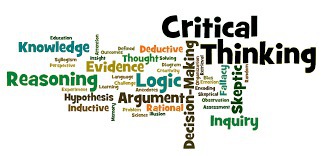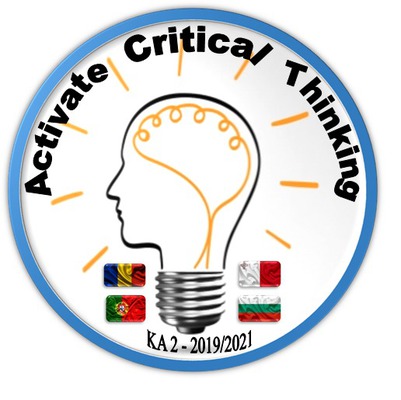


2019-1-RO01-KA229-063699
Project title: ACT-Activate Critical Thinking-from media literacy to digital literacy against discrimination
We are living in a fast changing world. Through new technologies such as artificial intelligence (AI) and the Internet, it is now possible to access all kinds of content, at any time and at any place.
Today students are under a steady barrage of information, particularly from online sources, friends, parents and media, and it quickly becomes evident that they need to learn how to evaluate what they see and hear every day so they can identify false ideas and look beyond superficial appearances. A study conducted by Stanford University in 2016 shows that 4 out of 10 students believed a false story as true before even discovering that it did not have references, regarding its author or form of creation.
In years past, education was focused on rote learning and the ability to retain and repeat information. Problem-solving was confined to mathematics, and experimentation happened in the science lab. There’s a need for us to redefine education to adapt it to the demands of the digital era and help students build an increasingly connected world.
Educating students in critical thinking and Internet Safety means instilling the ability to make decisions, conduct in-depth analysis and evaluate the information received, without accepting what is accepted socially as true.
CRITICAL THINKING- ONE OF THE TOP 3 SKILLS REQUIRED BY 2020
The objectives of the project are:
1)To offer teachers cross-curricular opportunities to exchange views, share methods and create useful teaching materials, incorporating ICT and allow them to become creators of a critical thinking framework to be applied into daily teaching, by designing 1 teaching guide
2) To train 4 core teams of students to understand how digital and social media influence our lives, by identifying and sharing similarities & differences in the practices of different countries, using inquiry based learning and critical thinking for 2 years
3) To develop cross-curricular civic and intercultural competences enhancing the learning responsibility of the students’ use of critical thinking regarding media information encountered, enabling them to discriminate between fake news and the authentic ones, between discriminatory messages, in order to reject manipulation, combining at least 3 school subjects
4) To develop digital skills in creating media related content by using digital art for both students and teachers under the form of 1 e-magazine and 1 set of flashcards during the 24 months of project
implementation.
The methodology of the project uses blended activities for teachers and students in relation with real life issues: internet exploratory ones, a mixture of creative and real world activities, surveys and workshops, eTwinning couses and teaching resource creation.